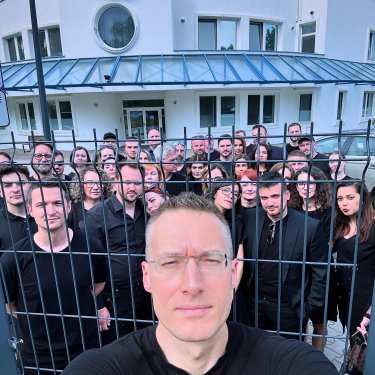Slovakia: The TV Markiza affair illustrates the urgent need for guarantees of editorial independence, in line with European law

The successive complaints of pressures exerted on TV Markiza's newsroom by the management of the country’s main private channel are a litmus test for its owners. Reporters Without Borders (RSF) urges them to take specific measures to protect the independence of the newsroom, in compliance with the European Media Freedom Act.
The negotiations about guarantees of editorial independence between the management of Slovakia’s biggest private channel, TV Markiza, and its journalists seemed on the brink of collapse on 5 June. While the management committed to respect “fact-based journalism”, it also suggested that employees “unable to accept [its] ethical framework and professional standards” resign.
However, it is precisely the channel’s editorial framework which is questioned by its journalists. Some claim to be under pressure motivated, according to them, by the owner’s desire to maintain good relations with the new government. In some instances, they were allegedly discouraged from asking ministers critical questions and providing airtime to their critics. The dispute culminated on 26 May, when Michal Kovacic, the anchor of the popular political debate, “Na telo”, denounced “pressures coming not only from the politicians, but also from our own management”.
TV Markiza’s management refuted the accusations, calling them “incorrect and unjustified”, and accused the journalist – supported by 120 of his colleagues – of “abusing the airtime to present his own opinions”. All this before suspending the anchor and his programme, boycotted for several weeks by the ruling majority, whose representatives had described TV Markiza a “hostile” media. They also threatened to withdraw advertising allocated by the state to the channel. Two ministers accused the newsroom of political activism in an attempt to undermine any agreement with the management.
Member of the European Union, Slovakia must endorse the European Media Freedom Act (EMFA), which calls for guarantees of editorial independence for both public and private media. The TV Markiza affair is an illustration of the need for such safeguards.
“The complaints of pressure exerted on the journalists of TV Markiza must be taken seriously. Its owners, CME and PPF, have to take specific measures to guarantee the channel’s editorial independence as well as the transparency of their dealings with the state. In doing so, the companies would simply be applying the recently adopted European Media Freedom Act. The threats to TV Markiza are a litmus test for the companies’ ability to protect their newsrooms across Europe from economic and political pressures.
Like 42 other channels in six countries of Central and Eastern Europe, TV Markiza is operated by the Central European Media Enterprises (CME) which has been owned since 2020 by the Prague-based PPF. The group is active in the media, transport or telecommunications sectors.
Demandes in the spirit of European legislation
In the spirit of the European legislation voted on 13 March and entering into force in the upcoming months, RSF calls on:
- TV Markiza’s management to continue negotiations with representatives of the journalists on guarantees of editorial independence;
- the company CME to regularly publish detailed information on the state advertising in Slovakia and on the PPF group to publicly inform about its business contacts with the country’s authorities in all economic sectors of its activities;
- Slovakia’s government to refrain from any political pressure on TV Markiza and from intervening in its negotiations with its journalists.
Losing 12 places since last year, Slovakia is ranked 29th out of 180 countries in RSF’s 2024 World Press Freedom Index.
